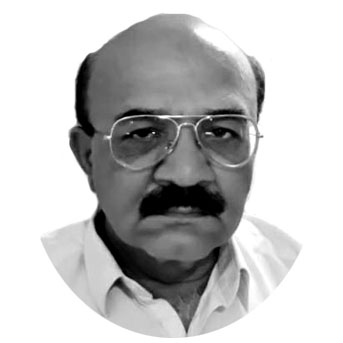Zulfikar Ali Bhutto: A legendary leader
IN politics, around the democratic world, the cult of personality rules the hearts and minds of voters.
The social thinker Max Weber gave the classic definition of the charismatic leader in democratic politics: a figure obeyed by disciples not “by virtue of tradition or statute, but because they believe in him.
The devotion of his disciples, his followers, his party friends, is oriented to his person and to its qualities.”
The only Pakistani leader to fulfil these ideals is perhaps Shaheed Zulfikar Ali Bhutto. It was his compellingly magnetic personality that inspired millions of Pakistanis.
Bhutto in death is bigger than life because after his murder, he transcended the barriers of time and place and became embedded in the heart of history. His great courage and heroic martyrdom turned him into the pride and honour of the nation.
Much has been written about Zulfikar Ali Bhutto and much more will be written. It is not just a futuristic vision but a fact of life, as well as a fact of history.
ZA Bhutto is equalled by very few people in the history of the world and by none in Pakistan.
When he walked gracefully to the gallows, Bhutto was already immortal.
But he grew in stature with every passing day since his assassination on 4th April 1979. His forte was his politics of charisma.
The present-day world owes him for his charming leadership for showing the world how it’s really done. Therefore, he will go into the history of politics as a charismatic leader.
Democracy in Pakistan has never been allowed to flourish and has always been subject to direct and indirect interventions.
The graves of former prime ministers Zulfiqar Ali Bhutto, Benazir Bhutto and those of their family members buried at Garhi Khuda Baksh, are a testament to the price which Pakistan Peoples Party (PPP) has paid for taking a stand against the powers that be.
Zulfiqar Ali Bhutto was a Pakistani politician who served as the 9th Prime Minister Of Pakistan from 1973 to 1977, and prior to that as the 4th President of Pakistan from 1971 to 1973.
He was also the founder of the Pakistan Peoples Party (PPP) and served as its Chairman until he was hanged in 1979.
He founded the PPP in 1967, contesting the general election held by President Yahya Khan in 1970.
While the Awami League won a majority of seats overall, the PPP won a majority of seats in West Pakistan; the two parties were unable to agree on a new constitution in particular on the issue of the Six-point Movement which many in West Pakistan saw as a way to break up the country.
Subsequent uprisings led to the separation of East Pakistan (now Bangladesh) and Pakistan losing the war against Bangladesh-allied India in 1971.
Zulfiqar Ali Bhutto was handed over the presidency in December 1971 and the emergency rule was imposed.
Zulfikar Ali Bhutto sought a peace agreement, Simla agreement with Indra Gandhi, Premier of India, and brought back 93,000 prisoners of war to Pakistan and secured 5,000 sq miles (13,000 km2) held by India without compromising on Kashmir stance or recognizing Bangladesh which was the key Indian demands.
He strengthened ties with China and Saudi Arabia recognized Bangladesh and hosted the second Organization of the Islamic Conference in Lahore in 1974.
Zulfikar Ali Bhutto was the founder of Pakistan’s Atomic Bomb programme, and due to his administrative and aggressive leadership to lead this nuclear deterrence programme, Bhutto is often known as the Father of Nuclear deterrence programme.
The last and crucial phase of his political career started in July 1977, after the government was overthrown and ended in April 1979 when he was convicted for murder in a highly controversial trial and hanged by Zia-ul-Haq.
Zulfikar Ali Bhutto faced those tough times with courage and conviction. He never budged under pressure from an oppressive military ruler.
The last two years of his life are entirely opposite to his eight years in politics when he was working with non-elected rulers.
For his supporters, Zulfikar Ali Bhutto symbolizes the best elements in politics, struggle against poverty and inequality as well as sacrifices for democracy and civilian supremacy.
Zulfikar Ali Bhutto was the one to lay the foundation of true democracy and paid the price for it heavily.
It was he who gave a unanimously approved Constitution to the country, which provided and ensured the autonomy of federating units of the country.
History will never forget the personality like Zulfikar Ali Bhutto and he is real entitling for Shaheed for the cause of poor people, democracy and sovereignty of the country.
— The writer is retired officer of Sindh Govt.










